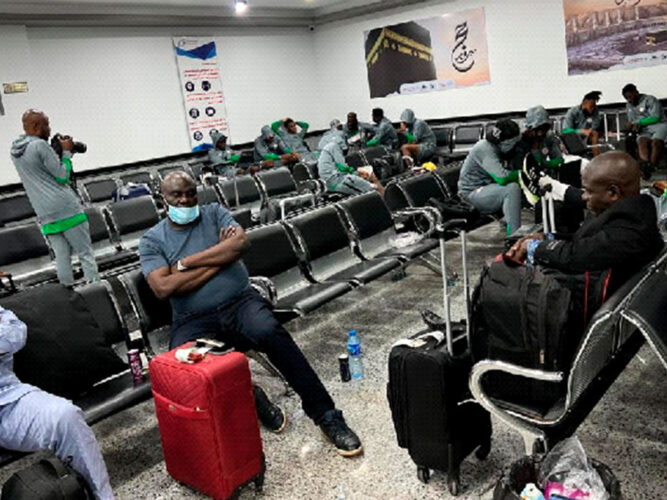The Tunisian pilot who flew the Nigerian Super Eagles to Libya has clarified the reasons behind the unexpected diversion of their flight to the remote Al-Abraq airport, instead of their original destination, Benghazi. The diversion has sparked controversy since Sunday, as the Nigerian delegation, en route to Benghazi for Tuesday’s 2025 Africa Cup of Nations qualifier against Libya, was left stranded for over 16 hours at Al-Abraq, an airport usually reserved for hajj operations.
In a video interview shared by sports journalist Pooja Media on X, the pilot explained that the decision to divert the flight came from Libyan authorities and was beyond his control.
“Our flight plan was to land at Benghazi's Benina airport, and we had approval from the Libyan Civil Aviation Authority,” he said. “However, as we began our descent, we were instructed to divert to Al-Abraq, which is 150 miles (300 kilometers) east of Benghazi. This wasn’t even listed as our alternate airport, which is highly unusual.”
The pilot expressed concern about the diversion, calling it a potential safety risk due to the fuel calculations made for the original destination.
“In aviation, we calculate fuel based on the flight plan, and such sudden changes can compromise safety,” he stated. “I questioned the directive multiple times, but the response was consistent: ‘It’s from the highest authority, you must land in Al-Abraq.’”
Addressing media claims that the diversion was his decision, the pilot refuted these reports, stressing that all communications are recorded in aviation and can be provided as evidence.
“I requested to land in Benghazi as per my flight plan and authorization, but they insisted it came from the highest authority. I warned them that fuel could become an issue, yet they still ordered us to divert.”
The pilot also described the difficulties of landing at Al-Abraq, a poorly equipped domestic airport lacking essential navigation systems like the Instrument Landing System (ILS) and VHF Omnidirectional Range (VHR).
“We had to make a visual landing in marginal weather at night, with no second chances if anything went wrong. It was a very challenging situation,” he said. The pilot's familiarity with the region, gained from two years of experience working there with a Tunisian company, was crucial in ensuring a safe landing.
In response to the ordeal, the Nigeria Football Federation (NFF) has decided to withdraw the Super Eagles from the AFCON qualifier against Libya.
“Players have resolved not to play the match, and NFF officials are making arrangements to fly the team back home,” the statement read.









